×
Il semble que vous utilisiez une version obsolète de internet explorer. Internet explorer n'est plus supporté par Microsoft depuis fin 2015. Nous vous invitons à utiliser un navigateur plus récent tel que Firefox, Google Chrome ou Microsoft Edge.
My Player placeholder

Devenez membre d'Incathlab et bénéficiez d'un accès complet !
Vous devez être membre pour accéder aux vidéos Incathlab sans limitation. Inscrivez vous gratuitement en moins d'une minute et accédez à tous les services Incathlab ! Vous avez aussi la possibilité de vous connecter directement avec votre compte facebook ou twitter en cliquant sur login en haut à droite du site.
Inscription Connexion
Inscription Connexion
Agenda:
|
Words of the Chairman Dr. Fajadet |
|
|
Rise of transradial access around the world Transradial pioneers’ discussion with Prof. Nolan, Dr. Bertrand, Dr. Gilchrist & Dr. Saito Moderated by Dr. Fajadet |
|
Latest evolution & future direction of transradial access
|
|
|
Live panel discussion with questions from the audience Pr. Montorsi, Pr. Nolan, Dr. Aminian, Dr. Iglesias & Dr. Fajadet |
|
|
Take home messages |
Objectives:
Join the celebration of transradial access if you want to:
- Learn from pioneers’ experience on how to become transradial access experts
- Expand your transradial practice, from the most complex PCI to neurology & radiology interventions
- Ask your unanswered questions to experts during the live panel discussion
Date du tournage : 26/09/2022
Dernière mise à jour : 06/03/2023
Dernière mise à jour : 06/03/2023
30 Years of Transradial Access: Pushing the boundaries in cardiology & beyond
For 30 years, Terumo Interventional Systems has focused on bringing radial access to the forefront of clinical practice. Our radial access product portfolio, clinical research, and collaborative ed...
Partager
Participer à la discussion
Suggestions
Mercredi 26 janvier 2022 de 18h à 19h30 (GMT+1)
Honolulu : Mercredi 26 janvier 2022 de 07h à 08h30 (GMT+1)
San Francisco : Mercredi 26 janvier 2022 de 09h à 10h30 (GMT+1)
New York : Mercredi 26 janvier 2022 de 12h à 13h30 (GMT+1)
Buenos Aires : Mercredi 26 janvier 2022 de 14h à 15h30 (GMT+1)
London / Dublin : Mercredi 26 janvier 2022 de 17h à 18h30 (GMT+1)
Paris / Berlin : Mercredi 26 janvier 2022 de 18h à 19h30 (GMT+1)
Istanbul : Mercredi 26 janvier 2022 de 19h à 20h30 (GMT+1)
Moscou / Dubaï : Mercredi 26 janvier 2022 de 21h à 22h30 (GMT+1)
Bangkok : Jeudi 27 janvier 2022 de 00h à 01h30 (GMT+1)
Shanghai : Jeudi 27 janvier 2022 de 01h à 02h30 (GMT+1)
Tokyo : Jeudi 27 janvier 2022 de 02h à 03h30 (GMT+1)
Sydney : Jeudi 27 janvier 2022 de 03h à 04h30 (GMT+1)
Wellington : Jeudi 27 janvier 2022 de 05h à 06h30 (GMT+1)
San Francisco : Mercredi 26 janvier 2022 de 09h à 10h30 (GMT+1)
New York : Mercredi 26 janvier 2022 de 12h à 13h30 (GMT+1)
Buenos Aires : Mercredi 26 janvier 2022 de 14h à 15h30 (GMT+1)
London / Dublin : Mercredi 26 janvier 2022 de 17h à 18h30 (GMT+1)
Paris / Berlin : Mercredi 26 janvier 2022 de 18h à 19h30 (GMT+1)
Istanbul : Mercredi 26 janvier 2022 de 19h à 20h30 (GMT+1)
Moscou / Dubaï : Mercredi 26 janvier 2022 de 21h à 22h30 (GMT+1)
Bangkok : Jeudi 27 janvier 2022 de 00h à 01h30 (GMT+1)
Shanghai : Jeudi 27 janvier 2022 de 01h à 02h30 (GMT+1)
Tokyo : Jeudi 27 janvier 2022 de 02h à 03h30 (GMT+1)
Sydney : Jeudi 27 janvier 2022 de 03h à 04h30 (GMT+1)
Wellington : Jeudi 27 janvier 2022 de 05h à 06h30 (GMT+1)
Entering OCT into clinical practice
Partager
Mardi 25 janvier 2022 de 18h à 19h30 (GMT+1)
Honolulu : Mardi 25 janvier 2022 de 07h à 08h30 (GMT+1)
San Francisco : Mardi 25 janvier 2022 de 09h à 10h30 (GMT+1)
New York : Mardi 25 janvier 2022 de 12h à 13h30 (GMT+1)
Buenos Aires : Mardi 25 janvier 2022 de 14h à 15h30 (GMT+1)
London / Dublin : Mardi 25 janvier 2022 de 17h à 18h30 (GMT+1)
Paris / Berlin : Mardi 25 janvier 2022 de 18h à 19h30 (GMT+1)
Istanbul : Mardi 25 janvier 2022 de 19h à 20h30 (GMT+1)
Moscou / Dubaï : Mardi 25 janvier 2022 de 21h à 22h30 (GMT+1)
Bangkok : Mercredi 26 janvier 2022 de 00h à 01h30 (GMT+1)
Shanghai : Mercredi 26 janvier 2022 de 01h à 02h30 (GMT+1)
Tokyo : Mercredi 26 janvier 2022 de 02h à 03h30 (GMT+1)
Sydney : Mercredi 26 janvier 2022 de 03h à 04h30 (GMT+1)
Wellington : Mercredi 26 janvier 2022 de 05h à 06h30 (GMT+1)
San Francisco : Mardi 25 janvier 2022 de 09h à 10h30 (GMT+1)
New York : Mardi 25 janvier 2022 de 12h à 13h30 (GMT+1)
Buenos Aires : Mardi 25 janvier 2022 de 14h à 15h30 (GMT+1)
London / Dublin : Mardi 25 janvier 2022 de 17h à 18h30 (GMT+1)
Paris / Berlin : Mardi 25 janvier 2022 de 18h à 19h30 (GMT+1)
Istanbul : Mardi 25 janvier 2022 de 19h à 20h30 (GMT+1)
Moscou / Dubaï : Mardi 25 janvier 2022 de 21h à 22h30 (GMT+1)
Bangkok : Mercredi 26 janvier 2022 de 00h à 01h30 (GMT+1)
Shanghai : Mercredi 26 janvier 2022 de 01h à 02h30 (GMT+1)
Tokyo : Mercredi 26 janvier 2022 de 02h à 03h30 (GMT+1)
Sydney : Mercredi 26 janvier 2022 de 03h à 04h30 (GMT+1)
Wellington : Mercredi 26 janvier 2022 de 05h à 06h30 (GMT+1)
The Role of Mechanical Circulatory Support in High-Risk PCI
Impella Case Club
Partager
Discover it now!
Retry of an ostial LAD CTO, previous antegrade failure with Gaia family
Alex & The Young Generation - Ep.11
Partager
Discover now !
Everything you wanted to know about Recross without having to ask
Alex & The Young Generation - Ep.12
Partager
Mercredi 16 octobre 2024 de 18h à 18h45 (GMT+2)
Honolulu : Mercredi 16 octobre 2024 de 07h à 07h45 (GMT+2)
San Francisco : Mercredi 16 octobre 2024 de 10h à 10h45 (GMT+2)
New York : Mercredi 16 octobre 2024 de 13h à 13h45 (GMT+2)
Buenos Aires : Mercredi 16 octobre 2024 de 14h à 14h45 (GMT+2)
Reykjavik : Mercredi 16 octobre 2024 de 17h à 17h45 (GMT+2)
London / Dublin : Mercredi 16 octobre 2024 de 18h à 18h45 (GMT+2)
Paris / Berlin : Mercredi 16 octobre 2024 de 19h à 19h45 (GMT+2)
Istanbul : Mercredi 16 octobre 2024 de 20h à 20h45 (GMT+2)
Moscou / Dubaï : Mercredi 16 octobre 2024 de 21h à 21h45 (GMT+2)
Bangkok : Jeudi 17 octobre 2024 de 00h à 00h45 (GMT+2)
Shanghai : Jeudi 17 octobre 2024 de 01h à 01h45 (GMT+2)
Tokyo : Jeudi 17 octobre 2024 de 02h à 02h45 (GMT+2)
Sydney : Jeudi 17 octobre 2024 de 04h à 04h45 (GMT+2)
Wellington : Jeudi 17 octobre 2024 de 06h à 06h45 (GMT+2)
San Francisco : Mercredi 16 octobre 2024 de 10h à 10h45 (GMT+2)
New York : Mercredi 16 octobre 2024 de 13h à 13h45 (GMT+2)
Buenos Aires : Mercredi 16 octobre 2024 de 14h à 14h45 (GMT+2)
Reykjavik : Mercredi 16 octobre 2024 de 17h à 17h45 (GMT+2)
London / Dublin : Mercredi 16 octobre 2024 de 18h à 18h45 (GMT+2)
Paris / Berlin : Mercredi 16 octobre 2024 de 19h à 19h45 (GMT+2)
Istanbul : Mercredi 16 octobre 2024 de 20h à 20h45 (GMT+2)
Moscou / Dubaï : Mercredi 16 octobre 2024 de 21h à 21h45 (GMT+2)
Bangkok : Jeudi 17 octobre 2024 de 00h à 00h45 (GMT+2)
Shanghai : Jeudi 17 octobre 2024 de 01h à 01h45 (GMT+2)
Tokyo : Jeudi 17 octobre 2024 de 02h à 02h45 (GMT+2)
Sydney : Jeudi 17 octobre 2024 de 04h à 04h45 (GMT+2)
Wellington : Jeudi 17 octobre 2024 de 06h à 06h45 (GMT+2)
Guides de 1ère intention :
les trucs et les astuces qui aident en pratique
Partager
0
Days
0
Hours
0
Minutes
0
Seconds
Mercredi 2 avril 2025 de 18h à 19h (GMT+2)
Honolulu : Mercredi 2 avril 2025 de 07h à 08h (GMT+2)
San Francisco : Mercredi 2 avril 2025 de 10h à 11h (GMT+2)
New York : Mercredi 2 avril 2025 de 13h à 14h (GMT+2)
Buenos Aires : Mercredi 2 avril 2025 de 14h à 15h (GMT+2)
Reykjavik : Mercredi 2 avril 2025 de 17h à 18h (GMT+2)
London / Dublin : Mercredi 2 avril 2025 de 18h à 19h (GMT+2)
Paris / Berlin : Mercredi 2 avril 2025 de 19h à 20h (GMT+2)
Istanbul : Mercredi 2 avril 2025 de 20h à 21h (GMT+2)
Moscou / Dubaï : Mercredi 2 avril 2025 de 21h à 22h (GMT+2)
Bangkok : Jeudi 3 avril 2025 de 00h à 01h (GMT+2)
Shanghai : Jeudi 3 avril 2025 de 01h à 02h (GMT+2)
Tokyo : Jeudi 3 avril 2025 de 02h à 03h (GMT+2)
Sydney : Jeudi 3 avril 2025 de 04h à 05h (GMT+2)
Wellington : Jeudi 3 avril 2025 de 06h à 07h (GMT+2)
San Francisco : Mercredi 2 avril 2025 de 10h à 11h (GMT+2)
New York : Mercredi 2 avril 2025 de 13h à 14h (GMT+2)
Buenos Aires : Mercredi 2 avril 2025 de 14h à 15h (GMT+2)
Reykjavik : Mercredi 2 avril 2025 de 17h à 18h (GMT+2)
London / Dublin : Mercredi 2 avril 2025 de 18h à 19h (GMT+2)
Paris / Berlin : Mercredi 2 avril 2025 de 19h à 20h (GMT+2)
Istanbul : Mercredi 2 avril 2025 de 20h à 21h (GMT+2)
Moscou / Dubaï : Mercredi 2 avril 2025 de 21h à 22h (GMT+2)
Bangkok : Jeudi 3 avril 2025 de 00h à 01h (GMT+2)
Shanghai : Jeudi 3 avril 2025 de 01h à 02h (GMT+2)
Tokyo : Jeudi 3 avril 2025 de 02h à 03h (GMT+2)
Sydney : Jeudi 3 avril 2025 de 04h à 05h (GMT+2)
Wellington : Jeudi 3 avril 2025 de 06h à 07h (GMT+2)
Le choix des armes contre les lésions calcifiées
Nouveaux outils pour la prise en charge de calcifications coronaires
Partager
Bientôt
Ostial LCX occlusion through left main LAD struts - beware of complication
Alex & Friends - Ep.8
Partager

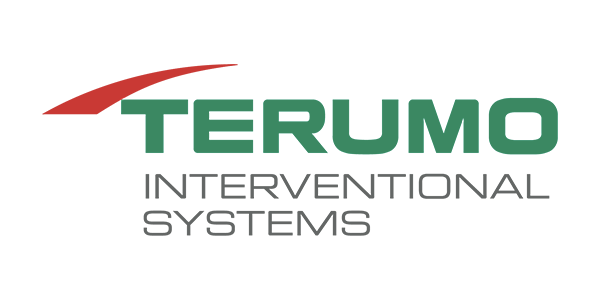




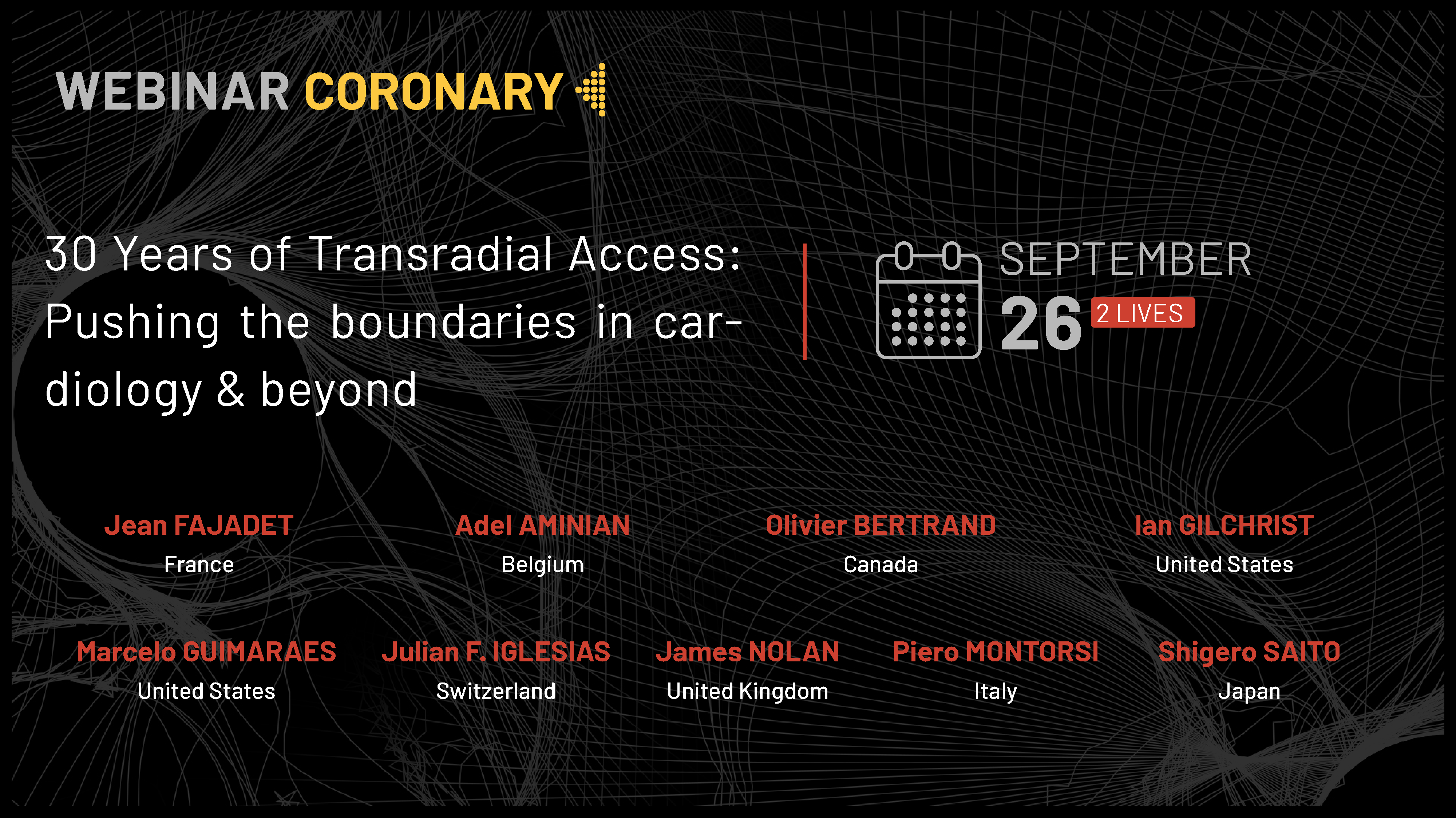
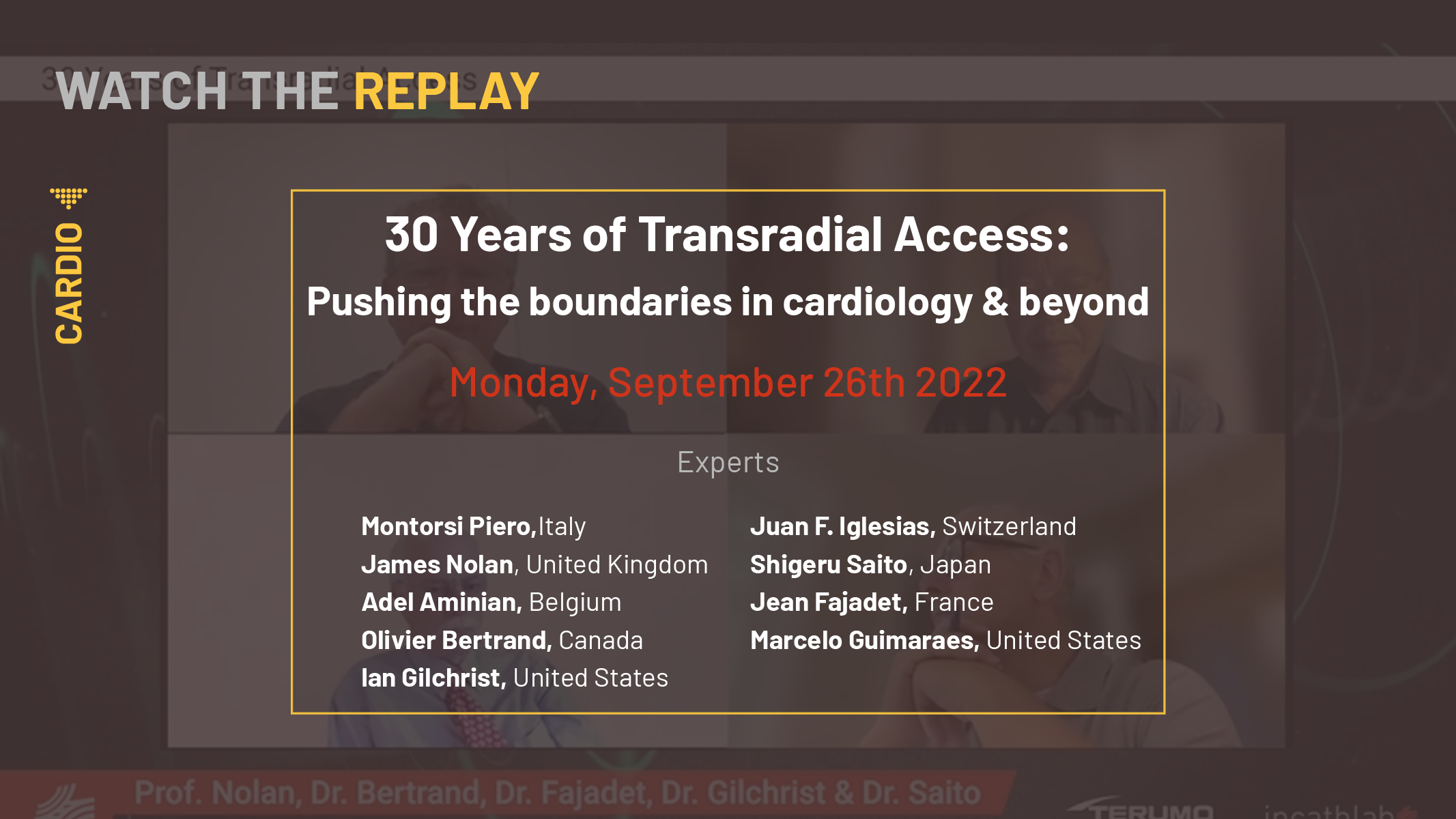
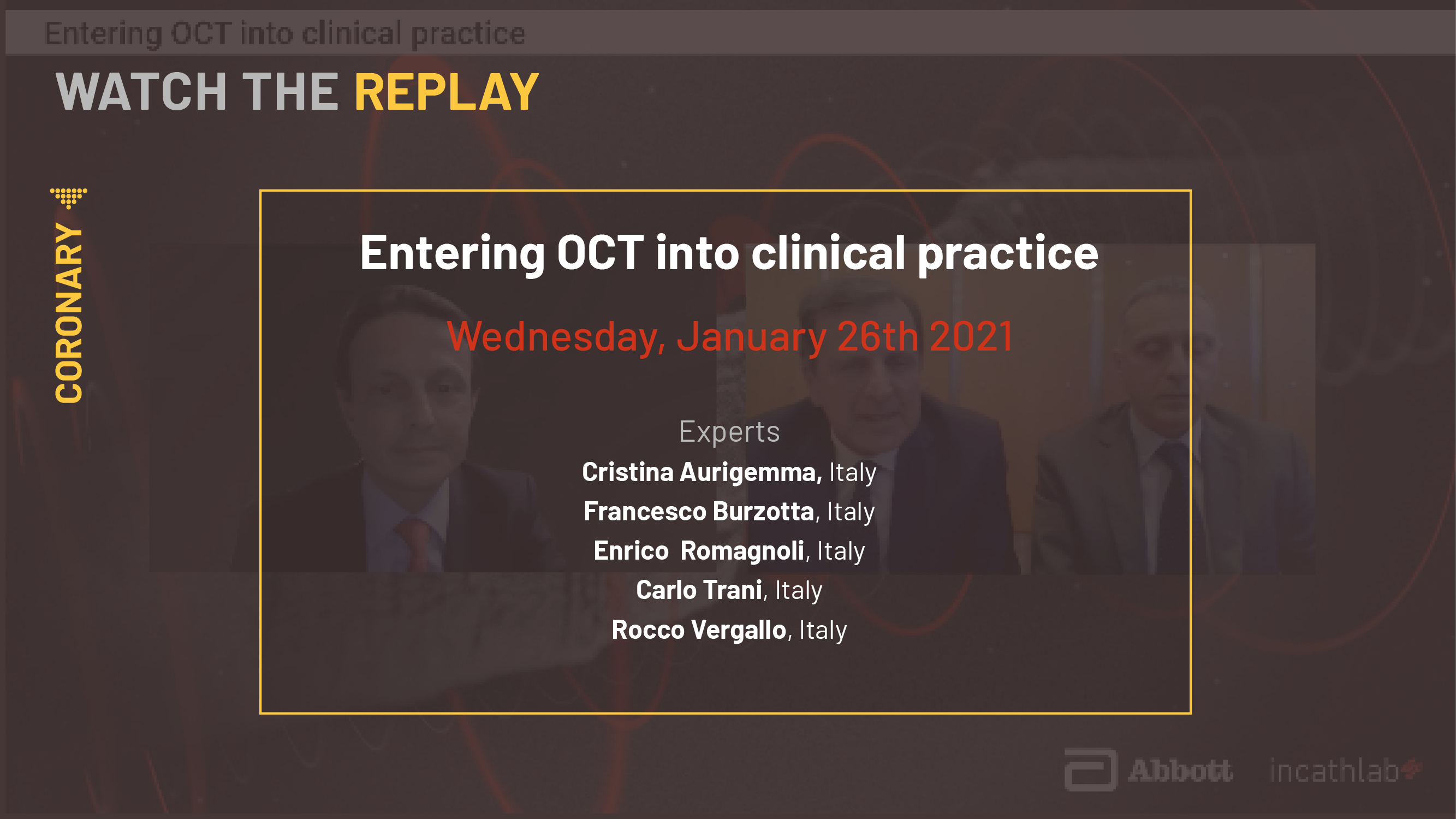
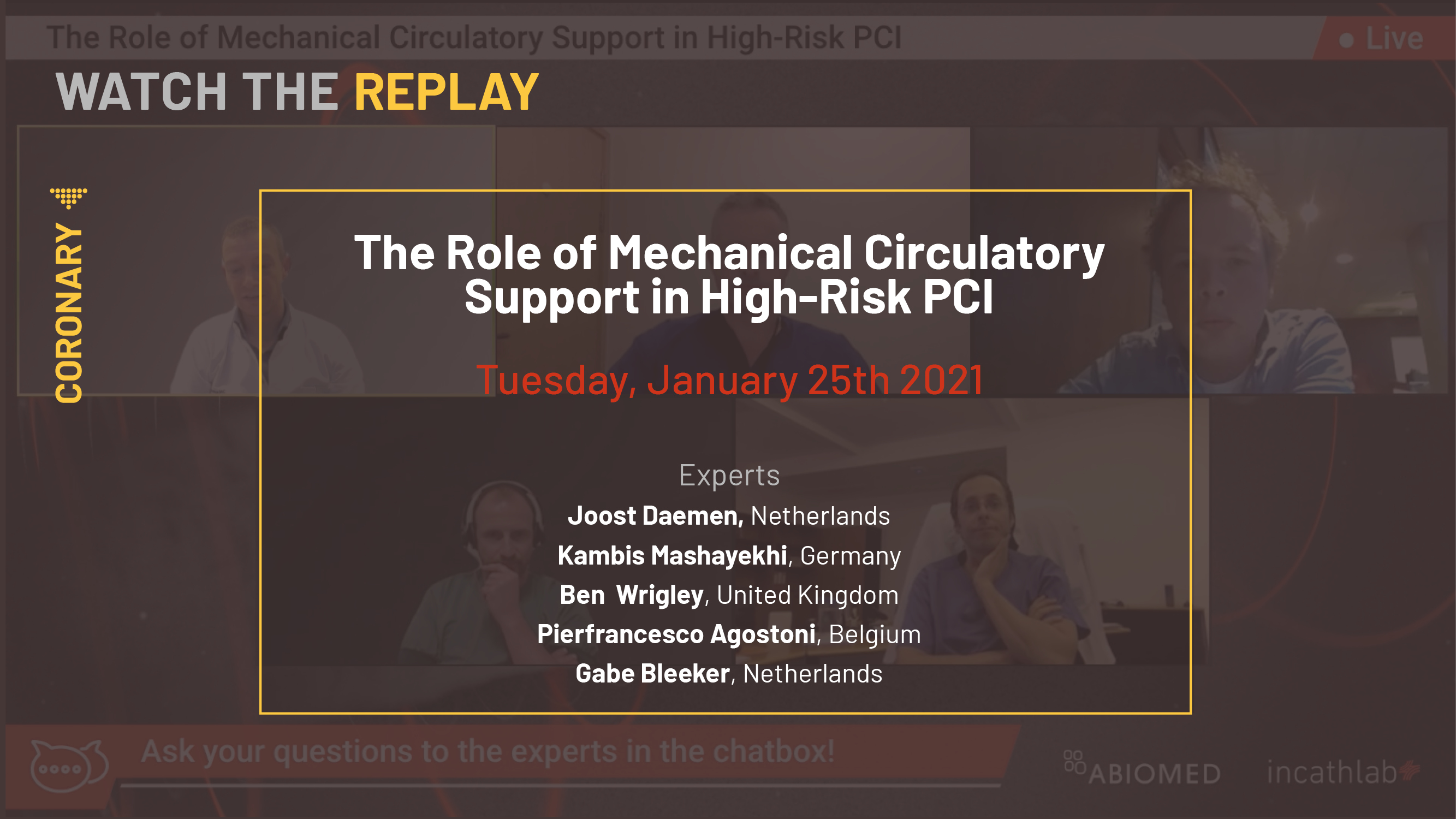

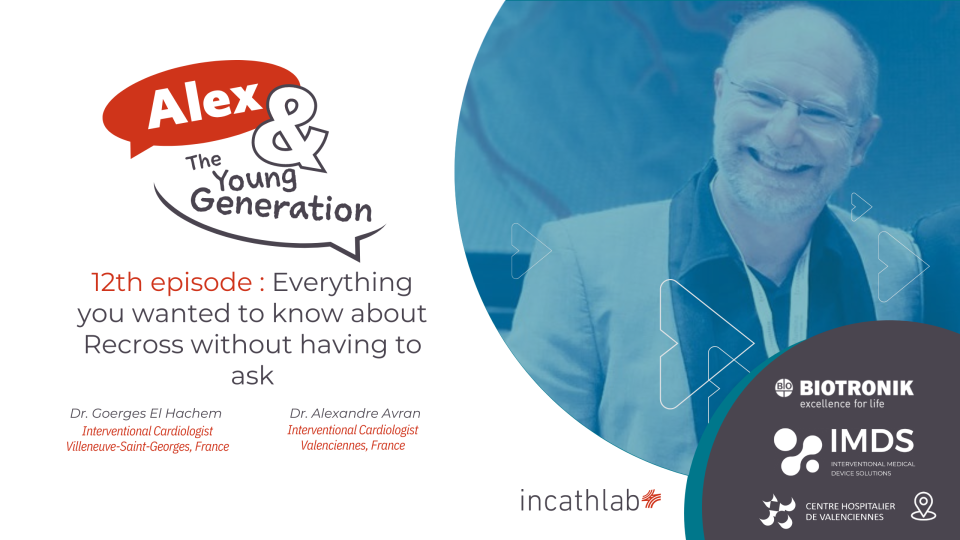
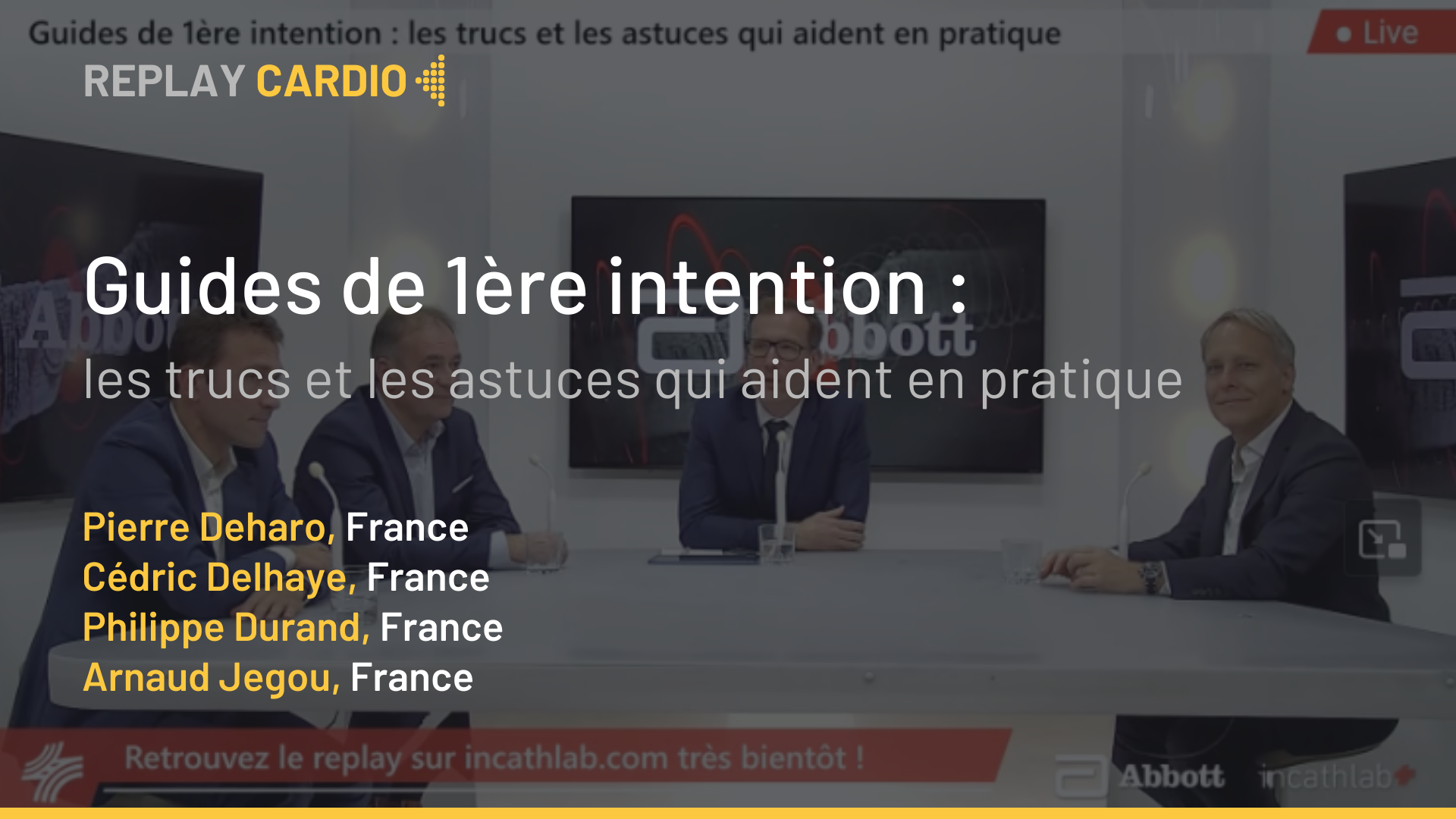
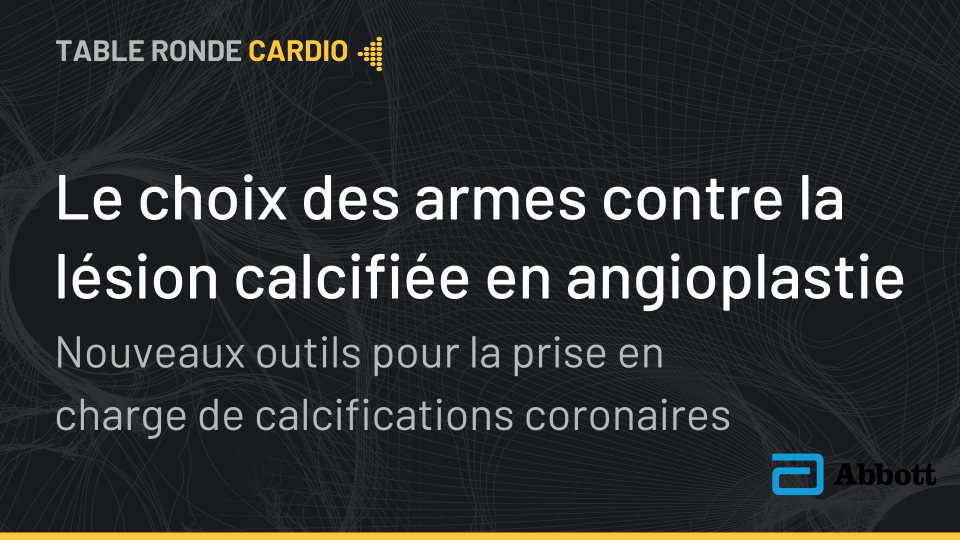
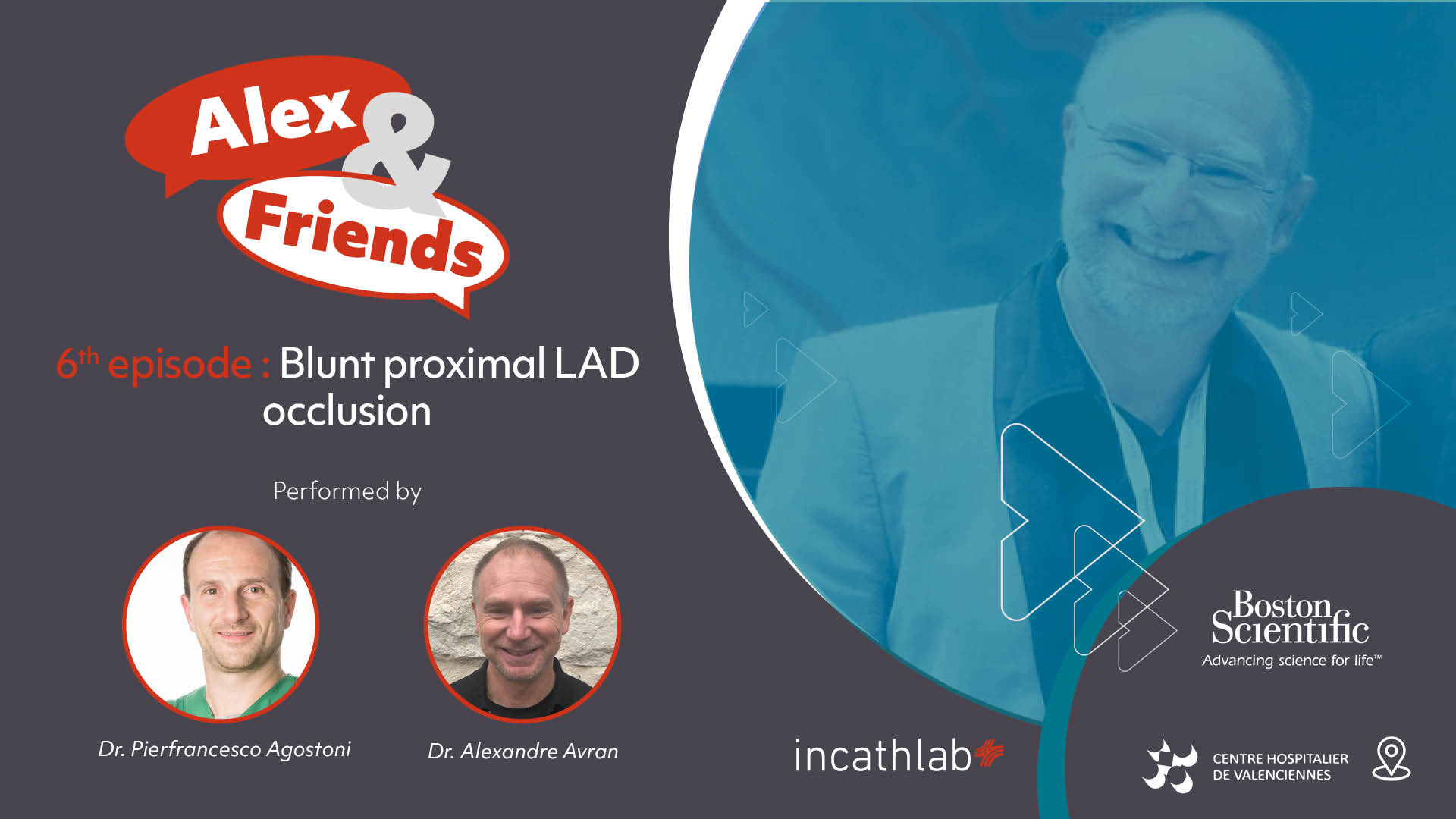
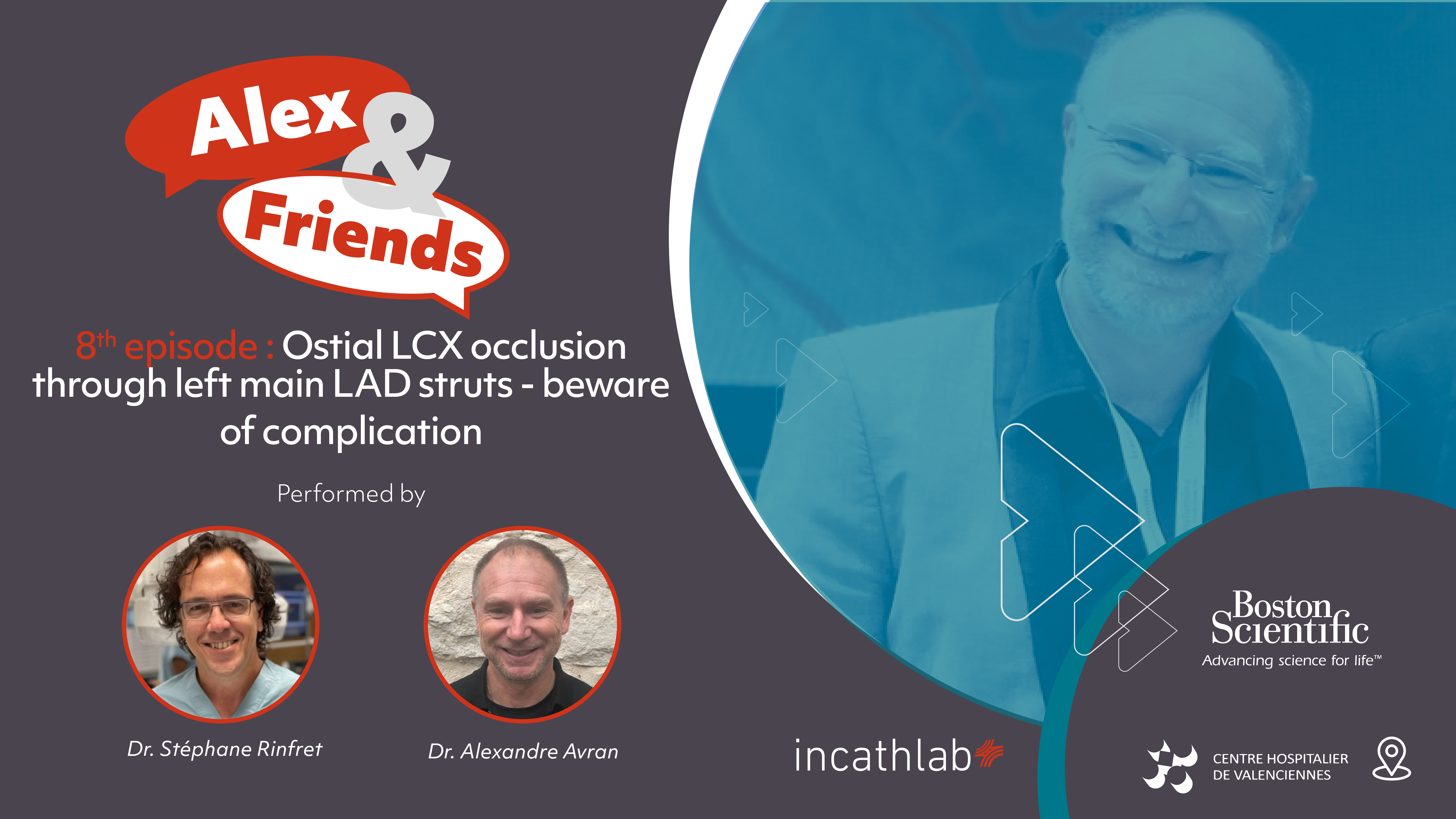
Hossein P. Loss of radial pulse after radial access angiography could be serious hazard for patients or
Angiolgists.
Ian G. Unlike a loss of femoral or brachial pulse, loss of radial pulse is usually asymptomatic and is not an acute hazard. The issue becomes what happens in the future if the radial is injured; future access is lost, use as a CABG conduit is lost or potential use for dialysis. With care, RAO rates below 1% can be obtained.